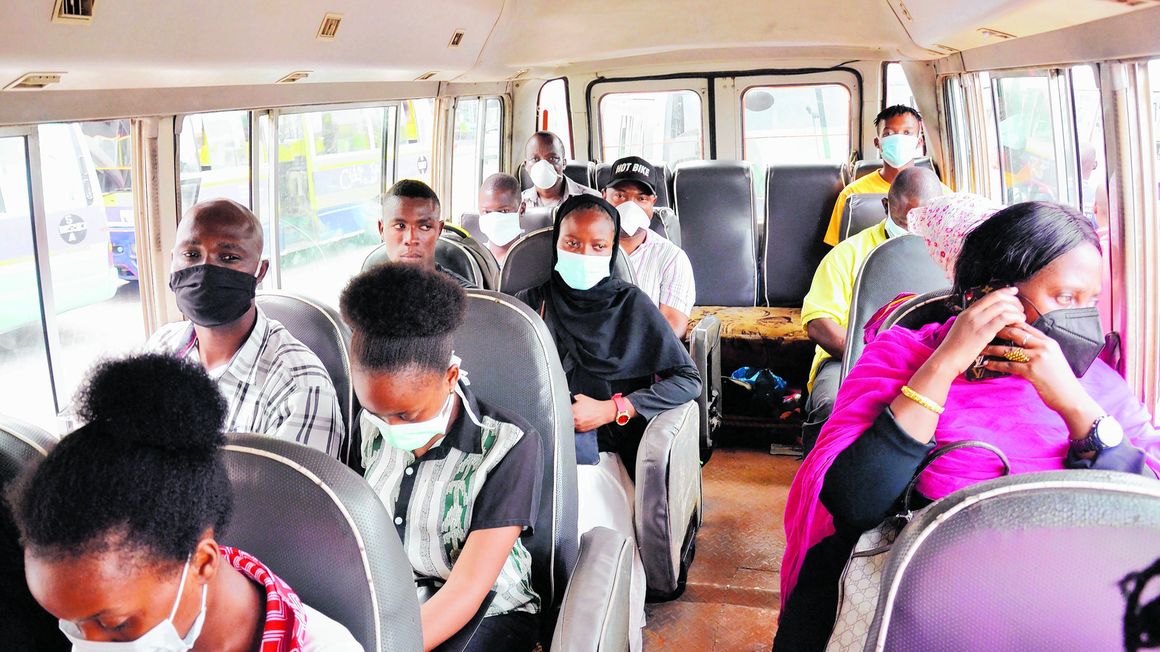
Commuters wear masks in a daladala in Dar es Salaam during the first wave of Covid-19 in April 2020. Social distancing was also being observed at that time. PHOTO | FILE
By Catherine Mbaga
Summary
Dar es Salaam. Ignorance of some commuters, lack of enforcement of government directives and rising pump prices have been cited as among key factors making it difficult to implement measures against the Covid-19 in public transport.
The measures range from avoiding crowding in public buses, application of hand sanitisers provided by operators and wearing of face masks by commuters.
Some weeks ago, the office of the Dar es Salaam Regional Commissioner directed traffic police officers to inspect commuter buses and order out passengers not wearing face masks.
Dar es Salaam Zonal Traffic Officer Abdi Issango told The Citizen yesterday that failure to adhere to the directives was attributed to low awareness and ignorance or denial of the pandemic.
“We’re enforcing RC’s office directives, but the response from the public is low,” he noted.
The guidelines issued by the Health ministry and the World Health Organisation direct that people should maintain social distancing, wear face masks, apply hand sanitisers, wash hands frequently with running water and soap as well as take the vaccines.
“Commuters should educate themselves about the disease and follow advice by scientists. Nobody should be forced,” he said.
Stressing: “Wearing a face mask is to protect them and others.”
Drivers’ Association of Tanzania secretary general Abdallah Lubala said it was no walk in the park for them to operate at level seat unless operational costs come down.
He said to cope with the high operational costs triggered by high fuel prices, they had no option other than carrying more passengers.
“The law requires us to operate at level seat. But practically, that is not happening,” noted Mr Lubala.
Warning: “If we abide by the law, people should get prepared for going to their working places late unless more buses are purchased to offer the service.”
A conductor operating on the Makubusho-Bunju route, Ms Warda Msangi, told The Citizen that they could not stop passengers from boarding public transport because if they did so they would incur losses.
“What a businessperson wants is making money and nothing else. It is not practical to reject commuters because they have no face masks,” she stressed.
On the question of level seats, Ms Msangi said that it was not possible unless pump prices came down.
Noting that the operational costs were high, she said with the price of diesel standing at over Sh2,250 per litre, it was uneconomical to operate at the level seat limit.
She was of the viw that the price be taken down to at least Sh1,600 per litre if commuter buses were to operate at the level seat.
Observation by The Citizen noted that commuters observed no measure at all to contain the spread of the deadly coronavirus.





No comments :
Post a Comment